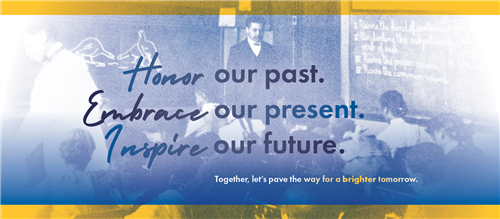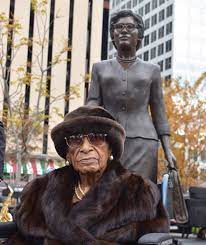- Saint Louis Public Schools
- Overview
-

February is a time to celebrate Black History Month, a time when we recognize and honor the profound contributions of African Americans throughout history. It's a moment to reflect on the struggles, triumphs, and resilience of a community that has played a pivotal role in shaping the United States into what it is today. In this article, we will explore the significance of Black History Month, delve into its history, and offer suggestions on how parents can engage their children to extend the celebration beyond the classroom. We'll also spotlight the remarkable Frankie Muse Freeman, a St. Louis native whose legacy continues to inspire generations.
Understanding the History of Black History Month
The history of Black History Month dates back to the early 20th century when Carter G. Woodson, a renowned African American historian, and educator, established "Negro History Week" in 1926. It was initially observed during the second week of February, coinciding with the birthdays of Abraham Lincoln and Frederick Douglass, two iconic figures in African American history.In 1976, President Gerald Ford officially recognized February as Black History Month, urging all Americans to "seize the opportunity to honor the too-often neglected accomplishments of black Americans in every area of endeavor throughout our history." Since then, February has been a month dedicated to exploring, celebrating, and educating ourselves about the achievements, struggles, and cultural contributions of African Americans.
Celebrating Black History Month Beyond the Classroom
Black History Month isn't limited to school classrooms; it's a time for families to come together and learn about the rich heritage of African Americans. Here are some ways that Saint Louis Public Schools parents can celebrate Black History Month with their children:-
Visit Local Museums and Cultural Centers: St. Louis is home to numerous museums and cultural institutions dedicated to African American history and culture. Plan a family trip to places like the Missouri History Museum's "Seeking St. Louis" exhibit or the Griot Museum of Black History and Culture.
-
Read Books Together: Share age-appropriate books about prominent African Americans, civil rights leaders, and important moments in Black history with your children. Engage in discussions about these figures and their impact on society. Consider a visit to Eye See Me Bookstore for ideas.
-
Watch Educational Films and Documentaries: Choose documentaries or movies that portray significant events in Black history. This can provide a visual and thought-provoking experience for your children.
Spotlight: Frankie Muse Freeman
 Frankie Muse Freeman, a St. Louis native, was a trailblazing civil rights attorney and activist who dedicated her life to the pursuit of justice and equality. Born in 1916, she broke down racial barriers in a time of deep segregation and discrimination. Freeman was the first woman to be appointed to the U.S. Commission on Civil Rights and played a pivotal role in addressing housing discrimination in St. Louis.
Frankie Muse Freeman, a St. Louis native, was a trailblazing civil rights attorney and activist who dedicated her life to the pursuit of justice and equality. Born in 1916, she broke down racial barriers in a time of deep segregation and discrimination. Freeman was the first woman to be appointed to the U.S. Commission on Civil Rights and played a pivotal role in addressing housing discrimination in St. Louis.Her fearless advocacy for civil rights and fair housing laws paved the way for a more just society. Frankie Muse Freeman's legacy continues to inspire us all, reminding us of the power of determination and the importance of standing up for what is right.
Learn more about this trailblazer here! Check back for more spotlights of figures in Black History.
-

